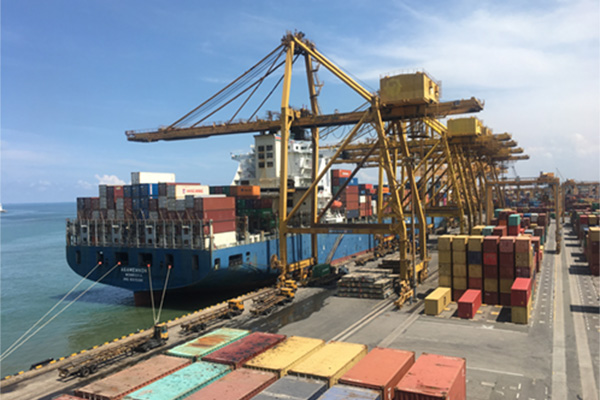Damages on goods during shipping
Transport over long periods of overseas products generates the possible development of mould on them especially during sea transport.

For many years, certain sensitive products (made from leather or similar) could be protected by substances such as dimethyl fumarate.
This molecule has antifungal activity and is used in particular in the countries of Southeast Asia, for seed , textiles and furniture saving, mainly during storage and transportation.
This use of dimethyl fumarate for antifungal purposes is prohibited for articles produced in the European Union and limited to items from a non-EU (concentration of dimethyl fumarate less than or equal to 0.1 mg / kg) . In the 2000’s, cases of hypersensitivity have arisen due to direct contact between the skin and the products (footwear and furniture) containing dimethyl fumarate.
These issues have been highly mediatized to highlight the “toxic” aspect of products preserved with dimethyl fumarate. The image has been very negative for producers but especially for retailers of these products. The consequence of this focus was immediately the reduction of concentrations of dimethyl fumarate in products imported to reach concentrations that meet European standards (less than or equal to 0.1 mg / kg).
Decreasing the concentration of preservative in the goods invariably leads to increased mould growth during transportation.

To overcome this drawback, a customer decided to make measurements on production sites to deploy preventive solutions.
These actions aimed to reduce the sources of mold contamination especially in factories. Note that this approach is highly complementary to the reduction in the use of preservatives.

The customer has an internal R & D team but wanted to work with CONIDIA for its knowledge on the interaction between mould and materials.
To work closer to customer needs, the first part of the work consisted to isolate and identify mould strains directly on the contaminated products. Therefore, we were able to implement tests with strains that are specific to the client and its products.

The next step was to test the client’s product in extreme conditions (= very favorable to fungal growth).
3 sets of tests on at least 21 days each were undertaken on finished products and raw materials to test their sensitivity to mold. These tests determine from which concentration of mould spores in the product, the risk of contamination was present.
These laboratory studies were completed by an audit by Mr Vacher, PhD of microbiology and manager of CONIDIA on the customer’s production site in China. Samples from the different plants were tested in the laboratory and the critical points in the manufacturing of the product were identified.

All these tests were carried out over a period of 6 months and enabled by combining laboratory results and audit to provide a protocol of analysis for the industry to:
- Follow its production at all stages, from the receipt of raw materials, the air and surfaces controls of the workshops, to the storage of finished products. This monitoring is done with simple tools for sampling and allows the client to be autonomous in its approach.
- Implement preventive measures before loading cargo on the ship.
- Significantly reduce the arrival of contaminated products in Europe.

The benefit of implementing preventive solutions in this case has a triple interest :
- Reduce financial losses related to the manufacture and transport of goods which are eventually destroyed after arrival at destination
- Avoid image problems for the manufacturer and the distributor and remove the cause of dissatisfaction among consumers.
- Reduce risks by reducing the use of toxic substances and go beyond the standards as dimethyl fumarate is no longer included in the finished products.
Let's work together !
If you have any needs or questions about environmental microbiology, contact us and we'll provide you with the answers you need.
